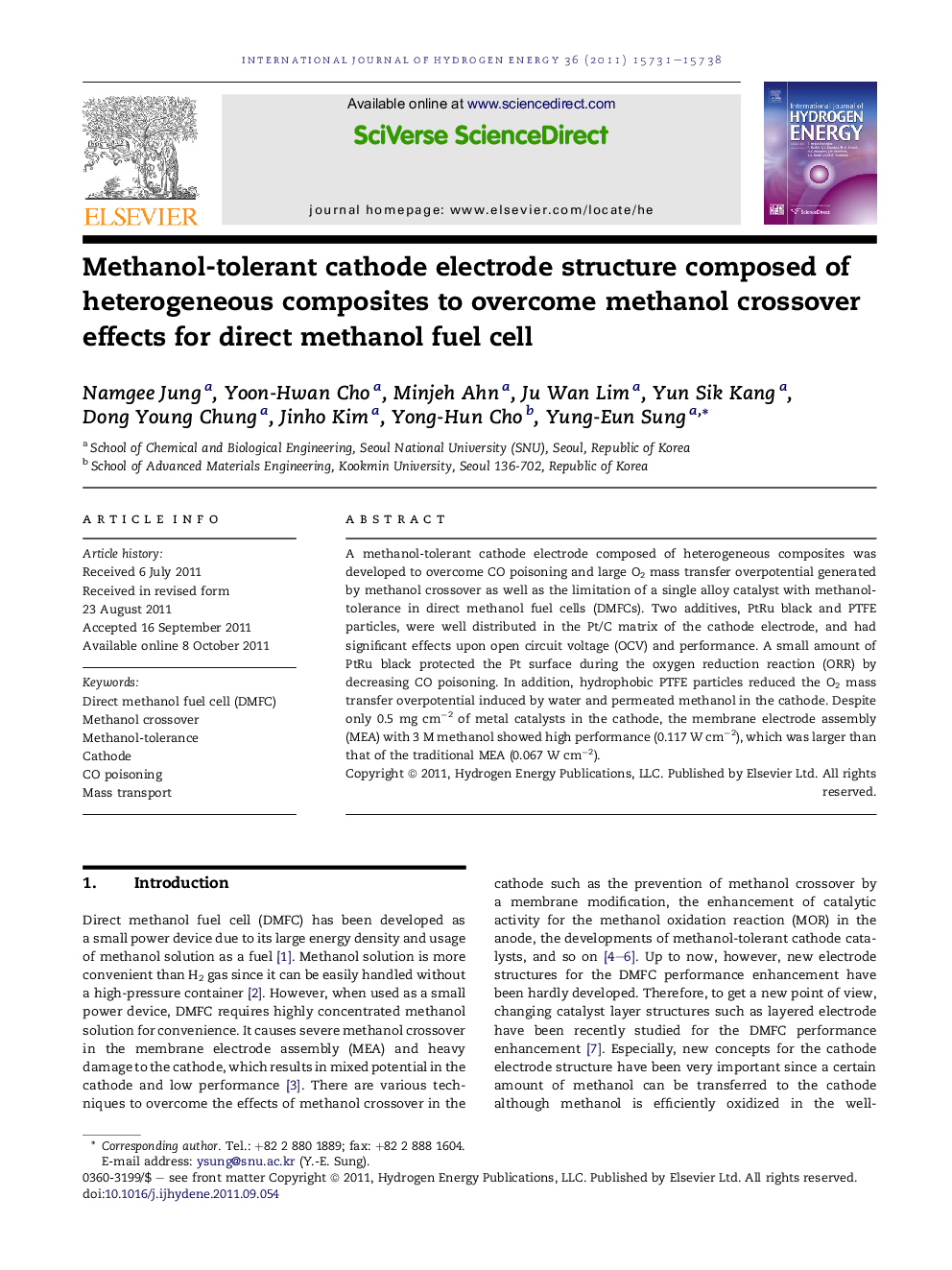| Article ID | Journal | Published Year | Pages | File Type |
|---|---|---|---|---|
| 1277372 | International Journal of Hydrogen Energy | 2011 | 8 Pages |
A methanol-tolerant cathode electrode composed of heterogeneous composites was developed to overcome CO poisoning and large O2 mass transfer overpotential generated by methanol crossover as well as the limitation of a single alloy catalyst with methanol-tolerance in direct methanol fuel cells (DMFCs). Two additives, PtRu black and PTFE particles, were well distributed in the Pt/C matrix of the cathode electrode, and had significant effects upon open circuit voltage (OCV) and performance. A small amount of PtRu black protected the Pt surface during the oxygen reduction reaction (ORR) by decreasing CO poisoning. In addition, hydrophobic PTFE particles reduced the O2 mass transfer overpotential induced by water and permeated methanol in the cathode. Despite only 0.5 mg cm−2 of metal catalysts in the cathode, the membrane electrode assembly (MEA) with 3 M methanol showed high performance (0.117 W cm−2), which was larger than that of the traditional MEA (0.067 W cm−2).
► We design a Pt/C cathode composite electrode including PtRu black and PTFE particles. ► PtRu black protects the Pt/C surfaces against CO poisoning. ► PTFE particles reduce the flooding caused by water and permeated methanol. ► The cathode results in high Pt utilization and low methanol crossover effects.
